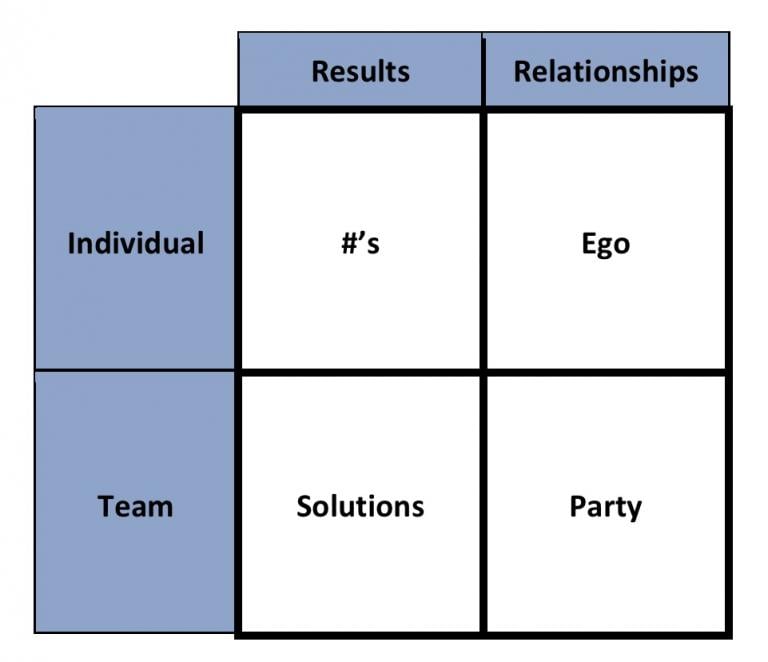“My job would be great, except for my boss…” “My boss is a &*#$%.” “My job was great, but then my boss took a new role and the atmosphere tanked.”
As president of an organization that helps people find joy and effectiveness at work, we hear these types of sentiments all the time. These complaints reveal one of the givens of the universe, a truth none of us can hide from. And this truth also holds the key to much greater satisfaction and productivity at work, because it reveals the key to the hidden software that you operate in at work: company culture.
Here’s the big idea:
The people in power have an over-sized impact on your well-being and effectiveness at work.
For most of us, the “person in power” is our boss. For some of us, it’s one person, for others, in more complex matrix organizations, it may be several different higher-ups.
From over thirty-five years of working, I’ve seen this issue from both sides. For ten of those years, I’ve worked under the leadership of others. For twenty-five of those years, I’ve “been my own boss.” Over and over again, it’s proven true: the personality, goals, values, and habits of the leader dramatically shape both the team and dynamics of the work environment. I’ve also seen that it’s impossible to escape the realities of their influence and control. For those of us who run our own companies and/or nonprofits, the people in power are our largest customers, donors, and our boards of directors.
This is the first in a series of four posts on “leading up.” Leading up is the art and skill of influencing your boss. In this installment, we begin by considering more deeply the reality of power in the workplace. In parts two and three, we’ll do a deep dive into the motivational profiles of four types of bosses. Each type will include both warnings as well as strategies for winning. The series will close with a consideration of three practices that almost always make it possible to lead up.
Fighting Reality
Power may be defined as the ability to get things done through others, even when others do not completely buy into the plan. Power is also having a measure of choice at work: what tasks are prioritized, how decisions are made, and how the actual work is completed. Control and freedom – the more you have of each, the more power you have.
If you grew up in a society that values equality, you may not like to think about power.
If you’ve had a moment at work where you were convinced you knew the best way forward, only to have that strategy blocked or indefinitely put on hold by an inept leader at the helm, you may see power as the problem.
If you have been bullied or coerced to compromise your values, priorities, or convictions, you may hate the idea that one person or group has sway over the well-being and success of another.
If you are a student of flat organizations and collaboration, you may think that “power dynamics” involve archaic concepts, the fixation of organizational Neanderthals.
All of these experiences are real. Yet, complaining about the fact that someone else has the ability to shape your work-life reality is a waste of time. It is a waste of time because you cannot fight reality. You can only face it and execute a strategy to make it as good as it can be.
Facing Reality
How are we to understand the brutal reality of power at work? Consider this ancient proverb.
A king’s wrath is a messenger of death, and a wise man will appease it. In the light of a king’s face there is life, and his favor is like the clouds that bring the spring rain. Proverbs 16:14-15
Translation: stirring up the anger of your boss (the king), is a sure way to lose your place at the table (a.k.a die!). But finding your way onto the list of the people your boss likes and wants to help, that is like the rain that brings bountiful crops (a/k/a scaling success).
The ancient wisdom writer is saying what we all know to be true, but resist facing: Our well-being, success, and path forward depend on others. They depend on the person or persons in authority.
At your place of employment, someone is in charge. They get things done. They determine who is in and who is out; who rises and who falls. In the proverb, they are called the king. Neither leaving the king nor killing the king are options! You have to learn how to garner influence with him.
Influence is the ability to get what you need to effectively produce the results you were hired to produce. To influence and lead up to your boss, you need to understand his/her motivational profile and adjust your strategy accordingly. A map of boss types is found below, and we will begin to examine each component in depth, in our next post.
How About You?
- How do you relate to this opening discussion on the reality of power dynamics at work? What perspective and/or baggage do you bring to this topic?
- On a scale of 1 to 10 (1 being not at all, 10 being complete), rate how much you agree with the importance of understanding power at work.
- Based on today’s post, what are three things you may need to adjust in your expectations for work and your strategy for relating to your boss?
Dr. Chip Roper writes Marketplace Faith from New York City, where he is the Founder and President of the VOCA Center. Under Chip’s leadership, VOCA rescues clients like you from the forces that rob them of effectiveness and joy at work. VOCA provides coaching, training, and consulting to individuals and organizations in NYC and beyond. Visit our faith-based website at vocacenter.org and our market-facing menu of services at www.vocacenter.com.













